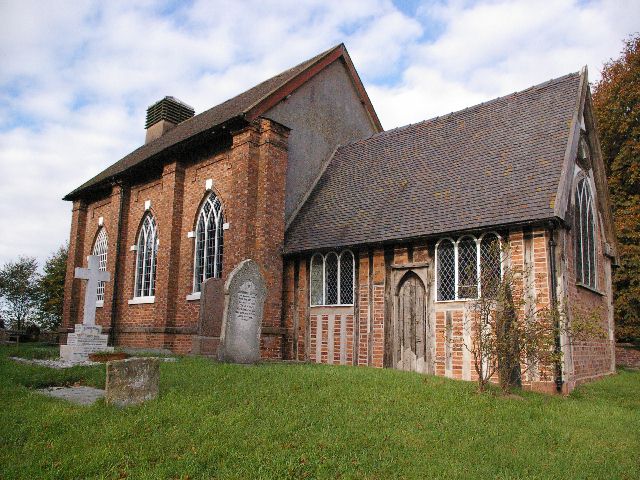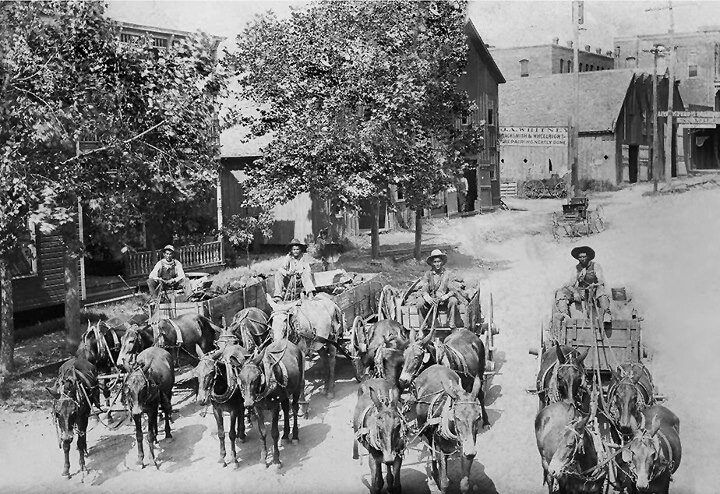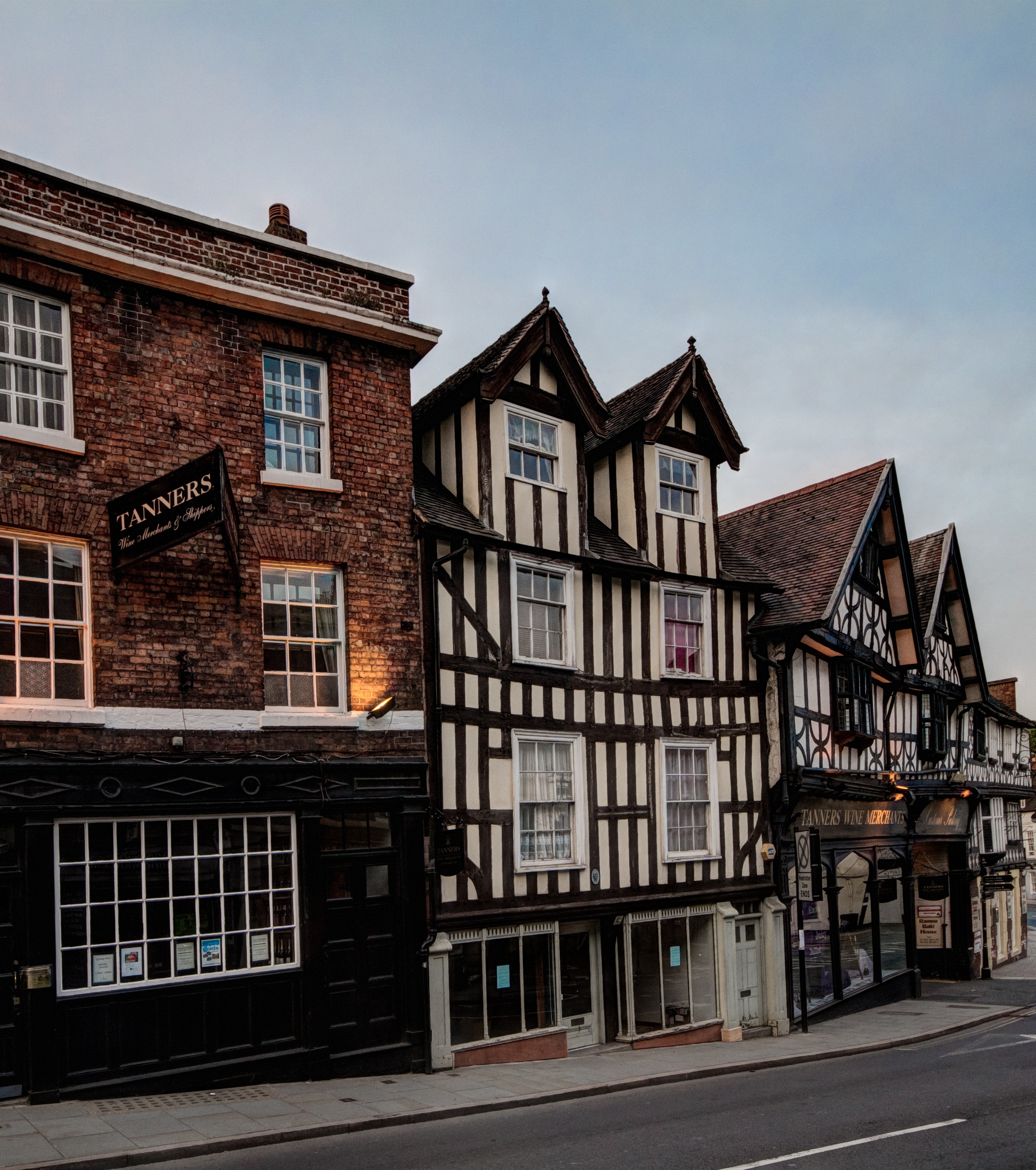|
Joseph Partridge (historian)
The Reverend Joseph Partridge (1724 – 25 October 1796) was an English waggoner, schoolteacher, clergyman, antiquary and historian. Despite the lack of a university education, he was ordained in his forties and subsequently wrote the first history of the Cheshire town of Nantwich, published in 1774. He also published religious works, including a didactic poem, ''The Anti-Atheist''. Early life Partridge was born at the Red Lion Inn (now the Wilbraham Arms) on Welsh Row in Nantwich, where his father, also named Joseph Partridge, was the landlord. He was baptised on 1 May 1724. His father also worked as a waggoner, transporting goods to London. His mother, Sarah Tew (died 1771/2), was probably the daughter of John Tew (died 1722), another Nantwich waggoner. His parents had married on 13 October 1722. Nothing is known of Partridge's early life or education, except that he never attended university.Hall, pp. 380–381Sutton CW (revd Skedd SJ).Partridge, Joseph (1724–1796), ''Oxfo ... [...More Info...] [...Related Items...] OR: [Wikipedia] [Google] [Baidu] |
Wagon
A wagon or waggon is a heavy four-wheeled vehicle pulled by draught animals or on occasion by humans, used for transporting goods, commodities, agricultural materials, supplies and sometimes people. Wagons are immediately distinguished from carts (which have two wheels) and from lighter four-wheeled vehicles primarily for carrying people, such as carriages. Animals such as horses, mules, or oxen usually pull wagons. One animal or several, often in pairs or teams may pull wagons. However, there are examples of human-propelled wagons, such as mining corfs. A wagon was formerly called a wain and one who builds or repairs wagons is a wainwright. More specifically, a wain is a type of horse- or oxen-drawn, load-carrying vehicle, used for agricultural purposes rather than transporting people. A wagon or cart, usually four-wheeled; for example, a haywain, normally has four wheels, but the term has now acquired slightly poetical connotations, so is not always used with technical ... [...More Info...] [...Related Items...] OR: [Wikipedia] [Google] [Baidu] |
Charity School
Charity schools, sometimes called blue coat schools, or simply the Blue School, were significant in the history of education in England. They were built and maintained in various parishes by the voluntary contributions of the inhabitants to teach poor children to read and write, and for other necessary parts of education. They were usually maintained by religious organisations, which provided clothing and education to students freely or at little charge. In most charity schools, children were put out to trades, services, etc., by the same charitable foundation. Some schools were more ambitious than this and sent a few pupils on to university. Charity schools began in London, and spread throughout most of the urban areas in England and Wales. By 1710, the statistics for charity schools in and around London were as follows: number of schools, 88; boys taught, 2,181; girls, 1,221; boys put out to apprentices, 967; girls, 407. By the 19th century, English elementary schools were ... [...More Info...] [...Related Items...] OR: [Wikipedia] [Google] [Baidu] |
English Christian Religious Leaders
English usually refers to: * English language * English people English may also refer to: Peoples, culture, and language * ''English'', an adjective for something of, from, or related to England ** English national identity, an identity and common culture ** English language in England, a variant of the English language spoken in England * English languages (other) * English studies, the study of English language and literature * ''English'', an Amish term for non-Amish, regardless of ethnicity Individuals * English (surname), a list of notable people with the surname ''English'' * People with the given name ** English McConnell (1882–1928), Irish footballer ** English Fisher (1928–2011), American boxing coach ** English Gardner (b. 1992), American track and field sprinter Places United States * English, Indiana, a town * English, Kentucky, an unincorporated community * English, Brazoria County, Texas, an unincorporated community * En ... [...More Info...] [...Related Items...] OR: [Wikipedia] [Google] [Baidu] |
English Antiquarians
English usually refers to: * English language * English people English may also refer to: Peoples, culture, and language * ''English'', an adjective for something of, from, or related to England ** English national identity, an identity and common culture ** English language in England, a variant of the English language spoken in England * English languages (other) * English studies, the study of English language and literature * ''English'', an Amish term for non-Amish, regardless of ethnicity Individuals * English (surname), a list of notable people with the surname ''English'' * People with the given name ** English McConnell (1882–1928), Irish footballer ** English Fisher (1928–2011), American boxing coach ** English Gardner (b. 1992), American track and field sprinter Places United States * English, Indiana, a town * English, Kentucky, an unincorporated community * English, Brazoria County, Texas, an unincorporated community * En ... [...More Info...] [...Related Items...] OR: [Wikipedia] [Google] [Baidu] |
English Local Historians
English usually refers to: * English language * English people English may also refer to: Peoples, culture, and language * ''English'', an adjective for something of, from, or related to England ** English national identity, an identity and common culture ** English language in England, a variant of the English language spoken in England * English languages (other) * English studies, the study of English language and literature * ''English'', an Amish term for non-Amish, regardless of ethnicity Individuals * English (surname), a list of notable people with the surname ''English'' * People with the given name ** English McConnell (1882–1928), Irish footballer ** English Fisher (1928–2011), American boxing coach ** English Gardner (b. 1992), American track and field sprinter Places United States * English, Indiana, a town * English, Kentucky, an unincorporated community * English, Brazoria County, Texas, an unincorporated community * En ... [...More Info...] [...Related Items...] OR: [Wikipedia] [Google] [Baidu] |
1796 Deaths
Events January–March * January 16 – The first Dutch (and general) elections are held for the National Assembly of the Batavian Republic. (The next Dutch general elections are held in 1888.) * February 1 – The capital of Upper Canada is moved from Newark to York. * February 9 – The Qianlong Emperor of China abdicates at age 84 to make way for his son, the Jiaqing Emperor. * February 15 – French Revolutionary Wars: The Invasion of Ceylon (1795) ends when Johan van Angelbeek, the Batavian governor of Ceylon, surrenders Colombo peacefully to British forces. * February 16 – The Kingdom of Great Britain is granted control of Ceylon by the Dutch. * February 29 – Ratifications of the Jay Treaty between Great Britain and the United States are officially exchanged, bringing it into effect.''Harper's Encyclopaedia of United States History from 458 A. D. to 1909'', ed. by Benson John Lossing and, Woodrow Wilson (Harper & Brothers, 1910) p17 ... [...More Info...] [...Related Items...] OR: [Wikipedia] [Google] [Baidu] |
1724 Births
Seventeen or 17 may refer to: *17 (number), the natural number following 16 and preceding 18 * one of the years 17 BC, AD 17, 1917, 2017 Literature Magazines * ''Seventeen'' (American magazine), an American magazine * ''Seventeen'' (Japanese magazine), a Japanese magazine Novels * ''Seventeen'' (Tarkington novel), a 1916 novel by Booth Tarkington *''Seventeen'' (''Sebuntiin''), a 1961 novel by Kenzaburō Ōe * ''Seventeen'' (Serafin novel), a 2004 novel by Shan Serafin Stage and screen Film * ''Seventeen'' (1916 film), an American silent comedy film *'' Number Seventeen'', a 1932 film directed by Alfred Hitchcock * ''Seventeen'' (1940 film), an American comedy film *''Eric Soya's '17''' (Danish: ''Sytten''), a 1965 Danish comedy film * ''Seventeen'' (1985 film), a documentary film * ''17 Again'' (film), a 2009 film whose working title was ''17'' * ''Seventeen'' (2019 film), a Spanish drama film Television * ''Seventeen'' (TV drama), a 1994 UK dramatic short starring Chris ... [...More Info...] [...Related Items...] OR: [Wikipedia] [Google] [Baidu] |
Sermon
A sermon is a religious discourse or oration by a preacher, usually a member of clergy. Sermons address a scriptural, theological, or moral topic, usually expounding on a type of belief, law, or behavior within both past and present contexts. Elements of the sermon often include exposition, exhortation, and practical application. The act of delivering a sermon is called preaching. In secular usage, the word ''sermon'' may refer, often disparagingly, to a lecture on morals. In Christian practice, a sermon is usually preached to a congregation in a place of worship, either from an elevated architectural feature, known as a pulpit or an ambo, or from behind a lectern. The word ''sermon'' comes from a Middle English word which was derived from Old French, which in turn originates from the Latin word meaning 'discourse.' A ''sermonette'' is a short sermon (usually associated with television broadcasting, as stations would present a sermonette before signing off for the night). The ... [...More Info...] [...Related Items...] OR: [Wikipedia] [Google] [Baidu] |
Oxford Dictionary Of National Biography
The ''Dictionary of National Biography'' (''DNB'') is a standard work of reference on notable figures from British history, published since 1885. The updated ''Oxford Dictionary of National Biography'' (''ODNB'') was published on 23 September 2004 in 60 volumes and online, with 50,113 biographical articles covering 54,922 lives. First series Hoping to emulate national biographical collections published elsewhere in Europe, such as the '' Allgemeine Deutsche Biographie'' (1875), in 1882 the publisher George Smith (1824–1901), of Smith, Elder & Co., planned a universal dictionary that would include biographical entries on individuals from world history. He approached Leslie Stephen, then editor of the ''Cornhill Magazine'', owned by Smith, to become the editor. Stephen persuaded Smith that the work should focus only on subjects from the United Kingdom and its present and former colonies. An early working title was the ''Biographia Britannica'', the name of an earlier eightee ... [...More Info...] [...Related Items...] OR: [Wikipedia] [Google] [Baidu] |
Pamphlet
A pamphlet is an unbound book (that is, without a hard cover or binding). Pamphlets may consist of a single sheet of paper that is printed on both sides and folded in half, in thirds, or in fourths, called a ''leaflet'' or it may consist of a few pages that are folded in half and saddle stapled at the crease to make a simple book. For the "International Standardization of Statistics Relating to Book Production and Periodicals", UNESCO defines a pamphlet as "a non-periodical printed publication of at least 5 but not more than 48 pages, exclusive of the cover pages, published in a particular country and made available to the public" and a book as "a non-periodical printed publication of at least 49 pages, exclusive of the cover pages". The UNESCO definitions are, however, only meant to be used for the particular purpose of drawing up their book production statistics. Etymology The word ''pamphlet'' for a small work (''opuscule'') issued by itself without covers came into Middl ... [...More Info...] [...Related Items...] OR: [Wikipedia] [Google] [Baidu] |
James Hall (historian)
James Hall (20 February 1846 – 6 October 1914) was an English antiquary, historian and schoolteacher, best known for his history of the Cheshire town of Nantwich, which remains among the principal sources for the town's history. He also edited accounts of the English Civil War and documents relating to Combermere Abbey. Another work on the history of Combermere Abbey, Newhall and Wrenbury was never published; its manuscript has been lost. Hall is commemorated in Nantwich in several ways, including a street named for him. Life Early life and education Hall was born in the Brayford Head district of Lincoln on 20 February 1846.Nantwich Museum: James Hall (Retrieved 3 April 2013)Hall WJ, pp. 6–7 His father, also James Hall (born 1816), captained a |
Shrewsbury
Shrewsbury ( , also ) is a market town, civil parish, and the county town of Shropshire, England, on the River Severn, north-west of London; at the 2021 census, it had a population of 76,782. The town's name can be pronounced as either 'Shrowsbury' or 'Shroosbury', the correct pronunciation being a matter of longstanding debate. The town centre has a largely unspoilt medieval street plan and over 660 listed buildings, including several examples of timber framing from the 15th and 16th centuries. Shrewsbury Castle, a red sandstone fortification, and Shrewsbury Abbey, a former Benedictine monastery, were founded in 1074 and 1083 respectively by the Norman Earl of Shrewsbury, Roger de Montgomery. The town is the birthplace of Charles Darwin and is where he spent 27 years of his life. east of the Welsh border, Shrewsbury serves as the commercial centre for Shropshire and mid-Wales, with a retail output of over £299 million per year and light industry and distribution centre ... [...More Info...] [...Related Items...] OR: [Wikipedia] [Google] [Baidu] |






